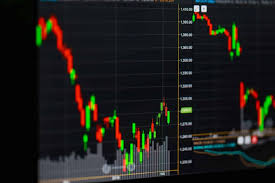
The Forex market operates around the clock, providing traders with opportunities at virtually any hour of the day. However, not all trading times are created equal. In this article, we will delve into the different forex trading sessions and how they unendingly influence market volatility and liquidity. Whether you’re a new trader or a seasoned pro, understanding these sessions can help you optimize your strategies. For professional assistance, consider working with forex trading sessions Trading Broker AR.
The forex market is divided into major trading sessions based on the financial hubs around the world. The four primary trading sessions correspond to cities that are significant in terms of forex trading volume: Sydney, Tokyo, London, and New York. Each session has its characteristics, which affect market movements, levels of volatility, and the trading strategies employed by traders.
The Sydney session opens the forex market each day. It begins at 10 PM GMT and runs until 7 AM GMT. This session usually sees lower trading volumes and less volatility compared to the others. Major currency pairs, such as AUD/USD and NZD/USD, are typically most active during this period. Traders often use this session to analyze market conditions, identify potential opportunities, and prepare for the more active sessions ahead.
Following Sydney, the Tokyo session runs from 12 AM GMT to 9 AM GMT. This session capitalizes on the activity of the Asian financial markets. Currency pairs involving the Japanese yen, such as USD/JPY and AUD/JPY, tend to experience higher volatility during this period. The Tokyo session is also known for its liquidity as many economic reports and indicators for Asian economies are released, which can lead to significant price movements.

The London session is often the most active trading period, running from 8 AM GMT to 5 PM GMT. This session overlaps with both the Sydney and New York sessions, leading to a significant increase in trading volume and liquidity. Major currency pairs like EUR/USD, GBP/USD, and USD/CHF typically see the most movement during this time. The London session is crucial for many traders due to the influx of economic data releases from Europe, which can drive price volatility.
The New York session commences at 1 PM GMT and closes at 10 PM GMT. As the U.S. dollar is one of the most widely traded currencies, this session is also characterized by high trading volumes. Similar to the London session, the New York session tends to see a spike in volatility due to the release of significant economic reports, statements from the Federal Reserve, and other news that can impact market sentiment. The overlap between London and New York sessions (from 1 PM to 5 PM GMT) is especially significant, as it draws the most liquidity and creates opportunities for traders.
Understanding the characteristics of each trading session can enhance your ability to execute strategies effectively:
The optimal time to trade can vary depending on your trading strategy. Day traders may prefer to focus on the London and New York sessions due to higher volatility, while swing traders might find value in the less active Sydney and Tokyo sessions for their quieter conditions. Monitoring overlapping periods can also lead to bursts of trading opportunity when liquidity is at its peak.
Understanding the forex trading sessions is essential for tailoring your trading strategy. Every session presents unique advantages and challenges. By aligning your trading activities with the most favorable market conditions, you can enhance your chances of success in the dynamic world of forex trading. Whether you’re day trading in high-volatility sessions or gearing up for a quieter market pace, the key is to adapt your approach based on the time zone you are focusing on. As always, consider seeking advice and support from trusted resources and professional brokers like Trading Broker AR to further refine your trading strategies.